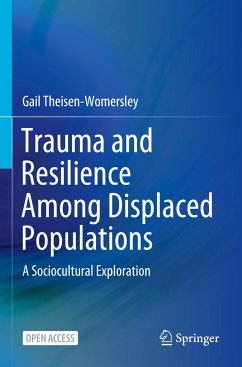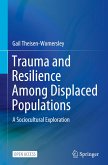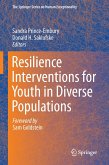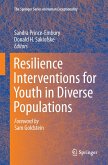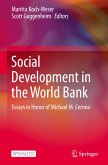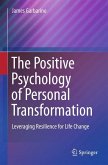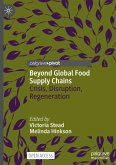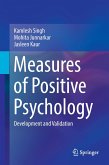This open access book provides an enriched understanding of historical, collective, cultural, and identity-related trauma, emphasising the social and political location of human subjects. It therefore presents a socio-ecological perspective on trauma, rather than viewing displaced individuals as traumatised "passive victims".
The vastness of the phenomenon of trauma among displaced populations has led it to become a critical and timely area of inquiry, and this book is an important addition to the literature. It gives an overview of theoretical frameworks related to trauma and migration-exploring factors of risk and resilience, prevalence rates of PTSD, and conceptualisations of trauma beyond psychiatric diagnoses; conceptualises experiences of trauma from a sociocultural perspective (including collective trauma, collective aspirations, and collective resilience); and provides applications for professionals working with displaced populations in complex institutional,legal, and humanitarian settings. It includes case studies based on the author's own 10-year experience working in emergency contexts with displaced populations in 11 countries across the world. This book presents unique data collected by the author herself, including interviews with survivors of ISIS attacks, with an asylum seeker in Switzerland who set himself alight in protest against asylum procedures, and women from the Murle tribe affected by the conflict in South Sudan who experienced an episode of mass fainting spells. This is an important resource for academics and professionals working in the field of trauma studies and with traumatised groups and individuals.
The vastness of the phenomenon of trauma among displaced populations has led it to become a critical and timely area of inquiry, and this book is an important addition to the literature. It gives an overview of theoretical frameworks related to trauma and migration-exploring factors of risk and resilience, prevalence rates of PTSD, and conceptualisations of trauma beyond psychiatric diagnoses; conceptualises experiences of trauma from a sociocultural perspective (including collective trauma, collective aspirations, and collective resilience); and provides applications for professionals working with displaced populations in complex institutional,legal, and humanitarian settings. It includes case studies based on the author's own 10-year experience working in emergency contexts with displaced populations in 11 countries across the world. This book presents unique data collected by the author herself, including interviews with survivors of ISIS attacks, with an asylum seeker in Switzerland who set himself alight in protest against asylum procedures, and women from the Murle tribe affected by the conflict in South Sudan who experienced an episode of mass fainting spells. This is an important resource for academics and professionals working in the field of trauma studies and with traumatised groups and individuals.

